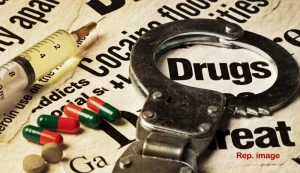Forget your usual beach reads—The Caribbean Connection by Ron Klein is not your everyday crime novel. It’s fast, fierce, and unapologetically raw. From page one, it drags you into the underbelly of the Caribbean drug trade, where every smile hides a scheme and every handshake could be a setup.
This story doesn’t meander. It launches with a 4 a.m. phone call—the kind you never want to get. Steven is jolted awake by a private line that only a handful of people know about. On the other end is David, panicked, breathless, and muttering about a major problem at the Candy Store. But this isn’t your local sweets shop. It’s the nerve center of a sophisticated drug empire.
Ron Klein’s narrative is relentless. Through gripping scenes and tight, no-nonsense dialogue, he introduces us to a cast of characters operating in the blurred lines between business and betrayal. Ron is the linchpin—sharp, strategic, and always one step ahead. He’s built a distribution empire that stretches from New York to the Virgin Islands. But as rivals circle and internal loyalty starts to fracture, even Ron’s iron grip begins to slip.
What gives The Caribbean Connection its weight isn’t just the thrilling action. It’s how Klein roots his story in real-world problems. The opioid crisis looms large in the background, casting a long shadow over every deal and decision. We’re reminded of the staggering death toll: 110,000 overdose deaths in the U.S. in 2023 alone, most tied to fentanyl and synthetic opioids. Klein doesn’t lecture; he shows us how the machinery of addiction grinds through lives and families.
One of the book’s most chilling aspects is its examination of how cartels exploit desperation. The Candy Store might serve banana splits and milkshakes up front, but in the back room, plans are drawn, territories are divided, and power is brokered over pills and powders. Ron and his crew aren’t just running a business—they’re navigating an ecosystem of corruption, competition, and survival.
The Caribbean setting isn’t just scenic window dressing. It plays a vital role in how the network moves its product. From seaplane landings in the rain to thermally controlled storage facilities hidden in plain sight, every detail feels meticulously plotted. Klein doesn’t just tell you what happens; he immerses you in how it happens. You can feel the humidity, taste the tension, and hear the conversations whispered in shadowy corners.
The central plot is a masterclass in tension. A mole has infiltrated Ron’s organization, and trust is disintegrating by the day. Who leaked the drop-off location? Who’s listening when they shouldn’t be? Ron doesn’t just want answers—he needs them, because in his world, not knowing is fatal. He’s not the kind of leader who delegates danger. He leans into it, confronting threats with calculated moves and an instinct for deception.
One of the novel’s standout moments is a brilliant piece of misdirection: a fake drug shipment designed to expose the traitor in their ranks. It’s a scene packed with suspense, where the only certainty is that someone won’t make it out alive. This is where Klein’s talent shines—he gives you high-stakes drama without ever tipping into melodrama. Every move feels earned, every twist inevitable.
But amid the power plays and shifting alliances, Klein gives us glimpses of something more human. Characters like Marcia, grieving the sudden loss of a kingpin husband, and Josephine, the mole with a conscience, add layers of complexity. Even Ron, hardened as he is, wrestles with the ethics of expanding into hard drugs. His decision to say no to fentanyl, even at a time when profits are shrinking, is a rare beat of integrity in a world built on manipulation.
There’s also the clever undercurrent of generational change. As Ron eyes retirement, he has to consider not just who will lead the company, but what kind of organization he’s leaving behind. His second-in-command, David, must navigate his own path while staying true to the values Ron still clings to. Will he maintain the old-school code, or adapt to a shifting criminal landscape?
Klein doesn’t give us tidy conclusions. Instead, he gives us hard questions: How far would you go to protect your territory? Who do you trust when everyone’s got a price? And what do you do when the rules of the game change overnight?
By the time you turn the final page, you’ll be questioning everything. Who survived? Who flipped? And most importantly—what comes next?
If you’re tired of formulaic thrillers and want a story that respects your intelligence while pulling no punches, The Caribbean Connection delivers. It’s bold, brutal, and unforgettable. It doesn’t just keep you turning the page—it makes you want to read between the lines.
This isn’t just a book to read. It’s a world to enter—just don’t expect to leave unscathed. You might find yourself double-checking who’s really on your side.


